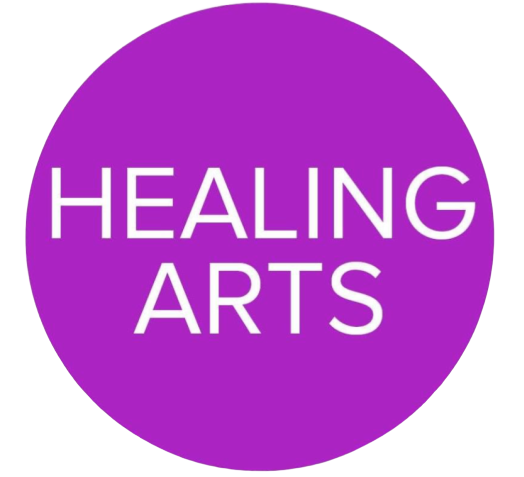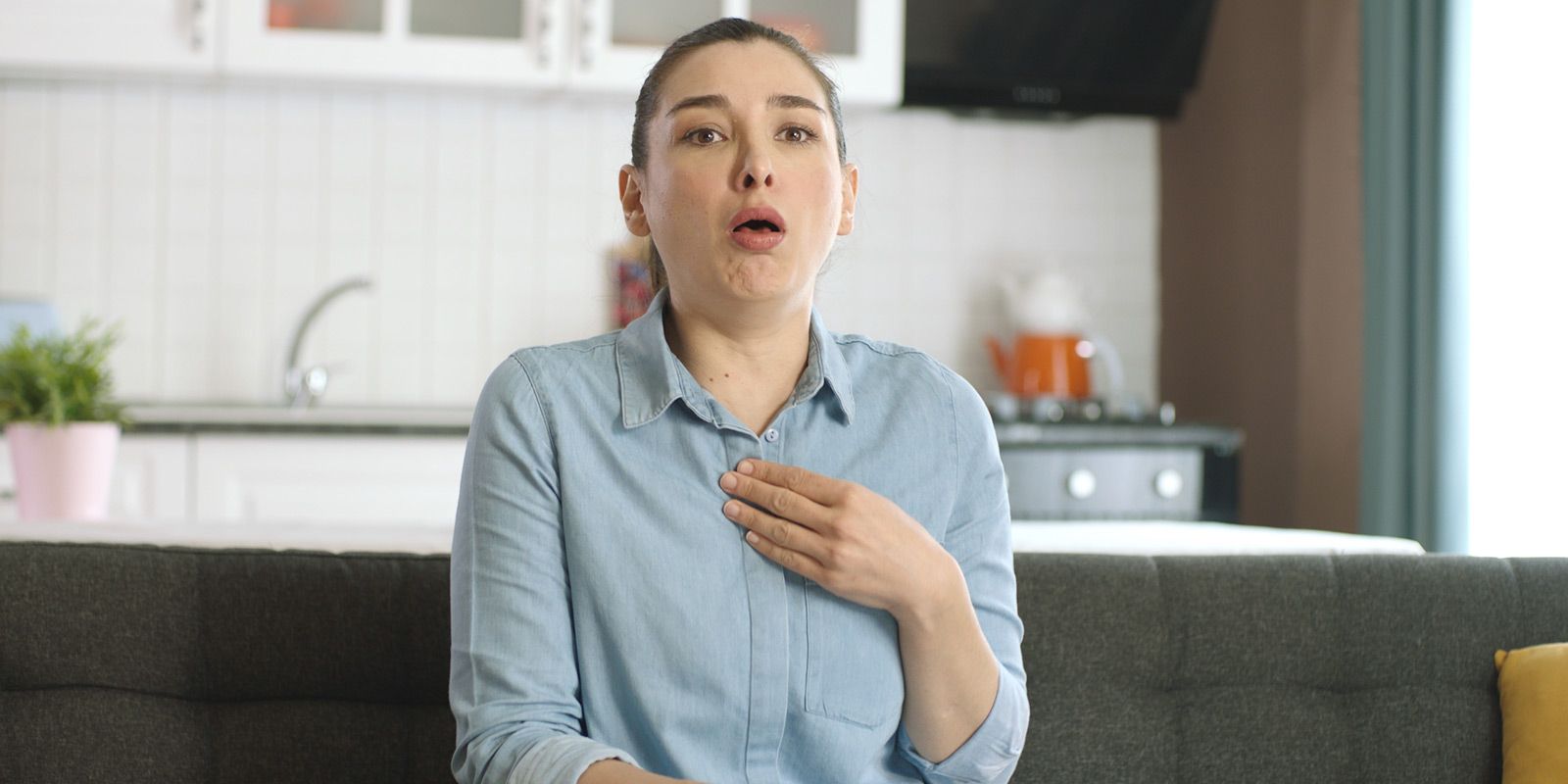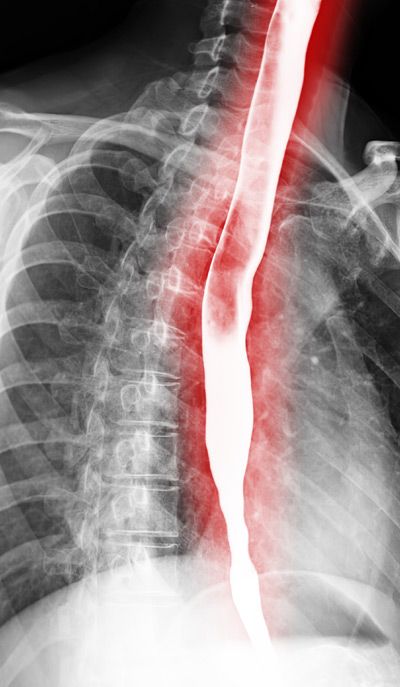GERD Remedies NYC - Dr. Alicia Armitstead
"Taking TUMS, or an over-the-counter antacid, is a classic example of treating the symptom and not the cause of your GERD. I will use muscle testing to find why your body is reacting as it is, and use natural remedies to correct the problem without medicine or surgery."
-Dr. Alicia Armitstead
Natural Remedies for Gastroesophageal Reflux Disease at the Healing Arts NYC Health and Wellness Center in Manhattan NY and Connecticut
What is GERD?
GERD stands for Gastroesophageal Reflux Disease, a digestive disorder affecting the ring of muscle between your esophagus and your stomach. This ring is called the lower esophageal sphincter (LES). If you have GERD, you may experience heartburn or acid indigestion, which happens when your lower esophageal sphincter is weak or relaxes when it shouldn't, allowing stomach acid to flow back into your esophagus.
Some factors that can increase your risk of GERD include obesity, pregnancy, hiatal hernia, smoking, eating large or late meals, drinking alcohol or coffee, and taking certain medications.
What Is The Difference Between GERD and Acid Reflux?
Acid reflux is a common condition that occurs when the stomach acid or other contents of your stomach flow back into your esophagus, causing a burning sensation in your chest (heartburn) or a sour taste in your mouth. Acid reflux can occasionally happen to anyone, especially after eating certain foods or drinking certain beverages.
GERD is a more severe and chronic form of acid reflux. GERD happens when acid reflux occurs frequently and damages the lining of your esophagus. GERD can cause more severe symptoms such as difficulty swallowing, coughing, wheezing, chest pain, and inflammation of the esophagus.
Acid reflux is a symptom of GERD, but not all cases of acid reflux are considered GERD. GERD requires medical treatment to prevent complications.
What Are The Symptoms of GERD?
GERD can cause a burning pain in your chest (heartburn), usually after eating or at night. Other symptoms of GERD may include:
- Regurgitation of food or a sour liquid (acid reflux)
- Difficulty swallowing (dysphagia)
- Sensation of a lump in your throat
- Persistent dry cough
- Hoarseness or sore throat
If you have frequent or severe symptoms of GERD, you should see Dr. Armitstead for diagnosis. GERD can lead to complications such as inflammation, ulcers, bleeding, narrowing, or cancer of the esophagus.
The Common Causes of GERD
GERD affects millions of people worldwide. Different factors may contribute to GERD in different individuals. However, some common causes or risk factors for GERD include:
- A weak or dysfunctional lower esophageal sphincter which is a ring of muscle at the junction of the esophagus and the stomach that acts as a valve to prevent reflux. Typically, the LES closes tightly after food passes into the stomach and opens only when needed. However, if the LES is weak or relaxes abnormally, stomach acid can flow back into the esophagus.
- A hiatal hernia. A hiatal hernia is defined as when a small part of your stomach bulges through an opening in the diaphragm and into the chest cavity. This can weaken or distort the LES and make it easier for reflux to occur.
- Obesity or pregnancy. Excess weight or pressure on the abdomen can strain the LES and increase intra-abdominal pressure, forcing stomach contents into the esophagus.
- Smoking or exposure to secondhand smoke. Smoking can damage the mucous membranes of the esophagus and impair its ability to clear acid. It can also reduce saliva production, which helps neutralize the acid. In addition, nicotine can relax the LES and stimulate acid secretion.
Certain foods or drinks. Some foods or beverages can trigger or worsen GERD symptoms by relaxing the LES and increasing acid production or secretion. Some examples of these foods or drinks are:
- Spicy foods
- Fatty or fried foods
- Chocolate
- Peppermint
- Citrus fruits and juices
- Tomato-based products
- Coffee and other caffeinated beverages
- Carbonated drinks
- Alcohol
However, different people may have other triggers for GERD, so it is important to identify and avoid one's own personal triggers. Other factors that can cause GERD include:
- Certain medications, such as aspirin, ibuprofen, nitrates, calcium channel blockers, and some antibiotics.
- Stress, anxiety, or depression. These can affect the function of the digestive system and increase acid reflux symptoms.
- Medical conditions, such as diabetes, asthma, scleroderma, Zollinger-Ellison syndrome, or gastroparesis.
- Genetic factors. Some people may inherit a tendency to have a weak or dysfunctional LES.
What Can Happen If GERD Is Left Untreated
There can be severe complications for your health if GERD is ignored and left untreated. Some of the possible consequences are:
- Esophagitis: When the lining of the esophagus becomes inflamed, and can lead to bleeding, ulcers, and scarring
- Esophageal stricture which is a narrowing of the esophagus due to scar tissue, which can make it hard to swallow food and drinks
- Barrett's esophagus, a condition where the normal cells of the esophagus are replaced by abnormal cells that are more prone to cancer
- Esophageal cancer: a rare but life-threatening type of cancer that affects the esophagus
- Asthma: a chronic lung disease that causes wheezing, coughing, and breathing difficulties
- Pneumonia: an infection of the lungs that causes fever, chest pain, and shortness of breath
These complications can be prevented or treated if you seek medical attention for your GERD symptoms. Dr. Armitstead uses only natural remedies, including dietary changes, lifestyle changes, and potentially a supplementation plan to help you control your GERD and protect your esophagus.

Contact Dr. Alicia Armitstead of Healing Arts NYC To Identify The Exact Causes of Your Gastroesophageal Reflux Disease
GERD is a complex condition that can have multiple causes. Dr. Armitstead will use muscle testing to identify the exact cause of the symptoms you are experiencing and create a personalized healing plan with natural remedies.
Understanding the causes of GERD can help people prevent and manage their symptoms effectively. Please do not ignore your symptoms or delay seeking help. Your health is important.
Please contact us today!
Additional References
- Gastroesophageal Reflux Disease (GERD) - Symptoms and Causes - Mayo Clinic
- Causes of GERD - About GERD
- Difference Between Heartburn, GERD and Reflux - Cleveland Clinic



